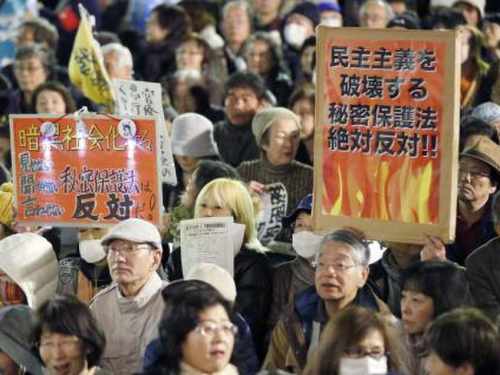Shinzo Abe's reckless power grab
- By Zhao Jinglun
 0 Comment(s)
0 Comment(s) Print
Print E-mail China.org.cn, December 11, 2013
E-mail China.org.cn, December 11, 2013
Shinzo Abe's right-wing government forced the country's state secrecy bill through Japan's upper house on Dec. 6, amid fierce resistance by the opposition parties and a public outcry.
|
|
|
Shinzo Abe's right-wing government forced the country's state secrecy bill through Japan's upper house on Dec. 6, 2013. |
The law will give agency heads discretionary power to classify 23 types of information into four categories-defense, diplomacy, counter-terrorism and counter-intelligence-and stiffens penalties for leaking state secrets, even in cases of journalists exposing wrongdoings. Offenders will face up to ten years in prison.
Abe has insisted that the law is necessary if Japan is to maintain an effective diplomatic partnership with the United States. In fact, the law greatly enhances his arbitrary power.
The law serves two of Shinzo Abe's ambitious plans: it makes it easier to share information with the United States and strengthen his alliance with Washington. The United States, for its part, has long supported stronger secrecy laws in Japan.
Equally importantly, the law would help facilitate Abe's revision or reinterpretation of the country's pacific constitution to make Japan a "normal country" with the right to collective self-defense, in other words a war fighting power. The Japanese government is even trying to rename three tiny reefs "islands" in an attempt to enlarge its exclusive economic zone.






